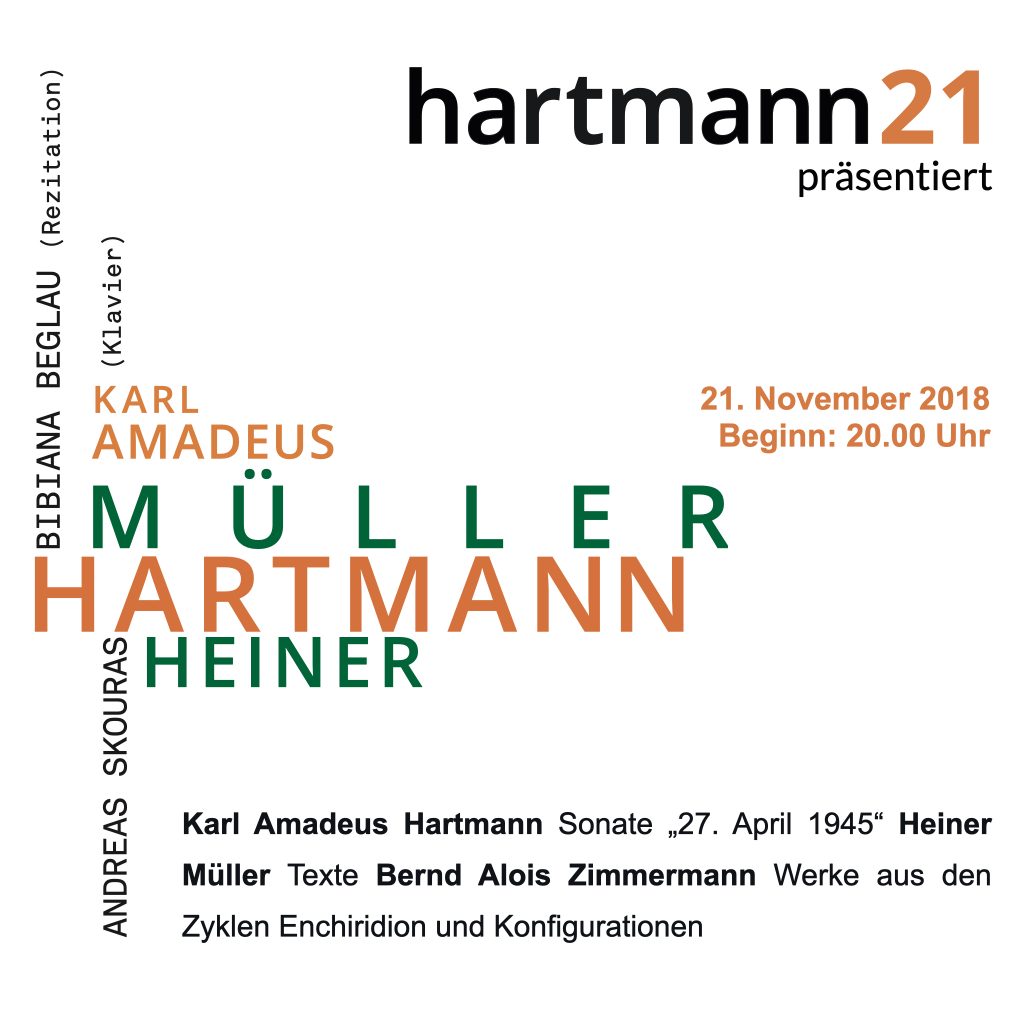„Die Welt als Schlachthaus“ [“The world as a slaughterhouse”] – for Karl Amadeus Hartmann as well as for Heiner Müller, this was not a theoretical experience, but experienced reality. Composed in the last days of the war before the final collapse of the inhuman “Third Reich”, the sonata “27. April 1945” for piano solo concludes the canon of compositions with which Hartmann, since 1927, untiringly opposed the incipient and in 1933 assertive National Socialism. He rigorously refused to be appropriated by the totalitarian regime in Germany and went into internal emigration, while as a composer he tried to speak abroad all the more eloquently. In his music, however, Hartmann not only mourns the loss of humanity, but also accuses and explicitly understands his composition as a “Gegenaktion” [“Counter action”]. The “slaughterhouse” has also become a topos for Heiner Müller’s work. His texts oscillate between the poles of an endless and hopeless cycle of violence and the utopia of a revolution – „die Lücke im Ablauf, das Loch in der Ewigkeit“ [“the gap in the course of events, the hole in eternity”] – as works and counterworks.
Bibiana Beglau, one of the most renowned actresses, could be won for the reading of the text excerpts from “Hamletmaschine” and “Verkommenes Ufer – Medeamaterial – Landschaft mit Argonauten”. An Hartmanns historischem Flügel wird sie begleitet von Andreas Skouras, einem der versiertesten Interpreten des Œuvres Bernd Alois Zimmermanns.
An event of the © Karl Amadeus Hartmann-Gesellschaft e. V., sponsored by Bayerisches Staatsministerium für Wissenschaft und Kunst, Kulturreferat der Landeshauptstadt München and Bezirk Oberbayern.
